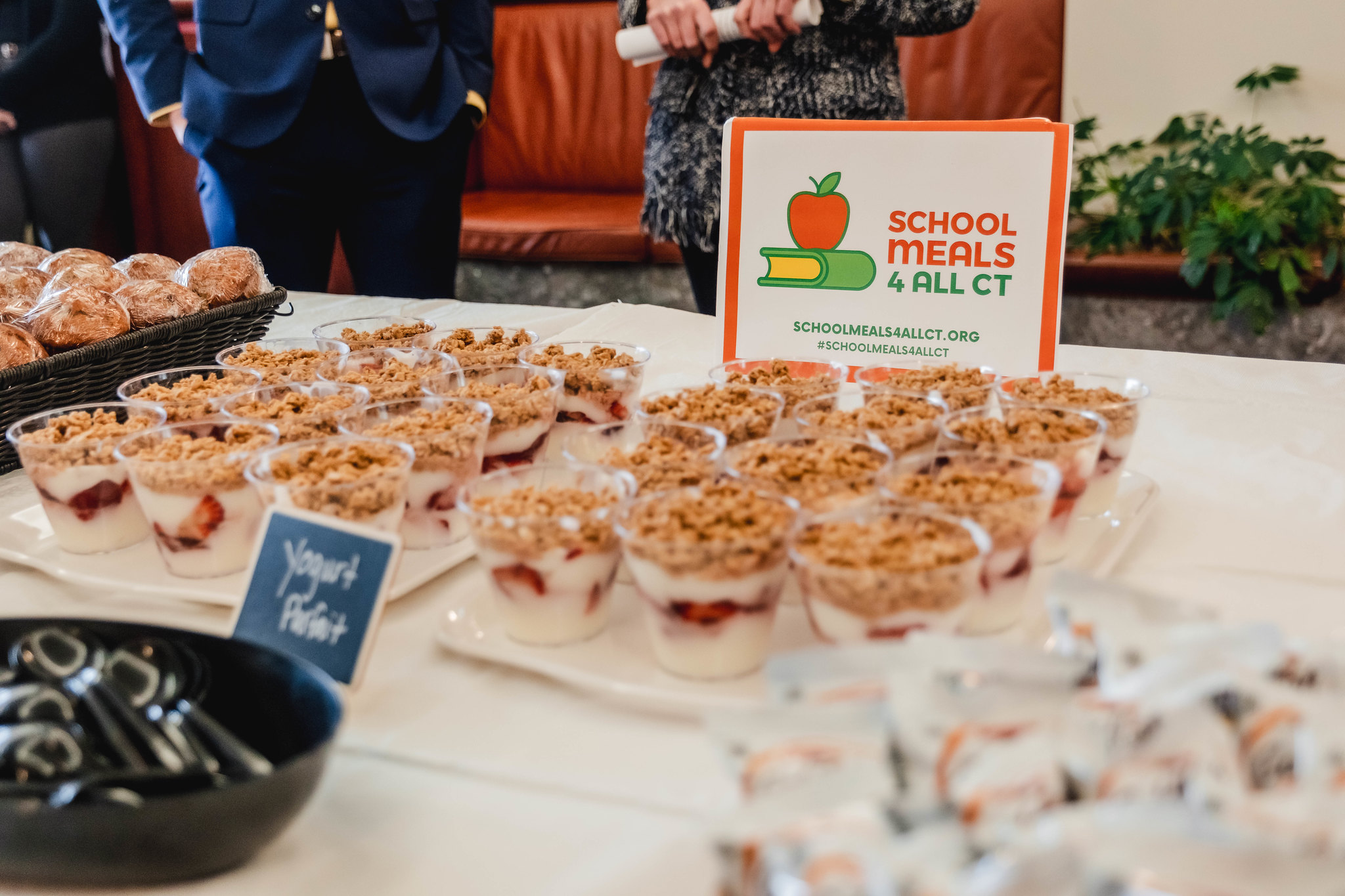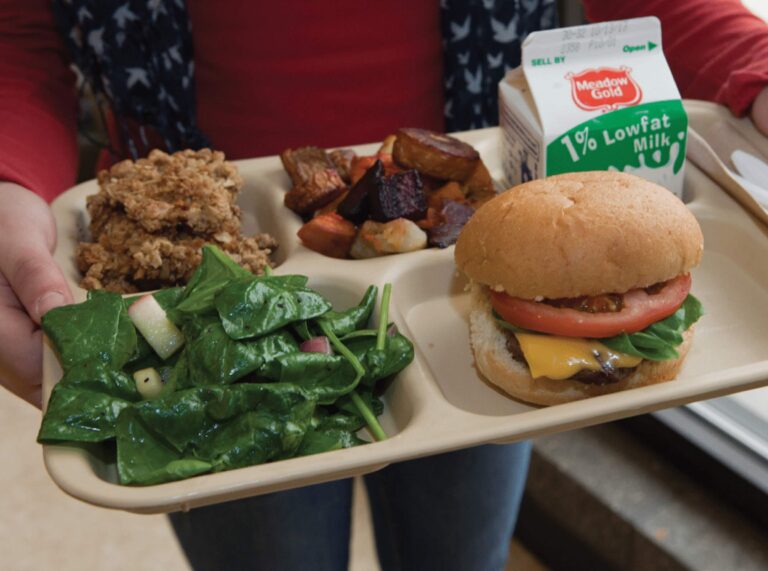The Policy Brief, March/April 2024: WIC is Fully Funded
The policy updates you need to know this month.
Join our corps! Applications for 2026-2027 are now open. Apply by March 30.
The policy updates you need to know this month.

A new season is upon us, and we’re springing forward into an exciting time for our policy work.
FoodCorps’ federal government relations team recently met with members of Congress in Massachusetts, Connecticut, New Jersey, Ohio, and Illinois, as well as with key representatives from the House Committee on Education and the Workforce, to talk about our child nutrition reauthorization (CNR) priorities.
CNR, which updates laws related to child nutrition, hasn’t moved in over a decade—here’s a refresher on why that matters and what you can do.
While we wait for CNR with the rest of the child nutrition community, here are the other policy updates you need to know.
H.R. 4366, the fiscal year appropriations law passed in early March, has fully funded the Special Supplemental Nutrition Program for Women, Infants, and Children, or WIC, for 2024. The law allocated $7.03 billion for the program, about $1 billion more than last year.
The law also rejected proposed changes that would have weakened the food packages available through WIC, decreasing access to fresh fruits and vegetables for families. WIC participation has increased by 5.3% since 2021, amounting to 332,000 more parents, children, and infants benefiting from the program.
This funding is a huge win for ensuring families have access to fresh and nourishing foods. Still, experts say WIC is underutilized. “With full funding secured for 2024,” writes Katie Bergh of the Center on Budget and Policy Priorities, “it is vital for state policymakers to do all they can to ensure eligible low-income families aren’t missing out on the important benefits WIC provides.”
On March 26, the School Meals for All CT coalition rallied advocates to testify in front of the Appropriations Committee in support of continued free breakfast and expanded lunch access for students across Connecticut.
Over 160 individual pieces of testimony were submitted, and legislators received hundreds of postcards from students celebrating school meals. A panel of FoodCorps school nutrition partners appealed to the legislative leaders about the benefits of school meals, both for holistic child wellness and for whole communities.
The hearing followed a coalition-hosted school breakfast, where legislators sampled breakfast items like local fruit smoothies and scratch-baked muffins. This event offered tangible examples of what students experience, and will continue to experience, in their cafeterias at mealtimes—if the state continues to invest in it, that is.
Our partners at the Food Research & Action Center (FRAC) released a report last month indicating that after the expiration of pandemic-era waivers granting nationwide free school meals, participation in school meals dropped significantly.
In the 2022–2023 school year, nearly 1.8 million fewer children ate school lunches and 1.2 million fewer ate school breakfasts, decreases of 6% and 7.7%, respectively, as compared to the school year before. This drop highlights the importance of free school meals in making sure every child has access to nourishing food, no matter their family income.
“The advancement of Healthy School Meals for All through both state legislation and community eligibility, combined with proven best practices for increasing participation—such as implementing innovative breakfast models, ensuring enough time to eat, and serving high-quality, appealing meals—is the path forward to ensure all children have access to the nutritious school meals they need to learn and thrive,” the report reads.
Read the full report from FRAC.
The Biden-Harris administration recently celebrated one year of its ambitious Challenge to End Hunger and Build Healthy Communities, a campaign promoting food, nutrition, and health across the United States.
At an event celebrating the milestone, Second Gentleman Douglas Emhoff announced $1.7 billion in new commitments from various companies, nonprofits, philanthropic groups, and others committed to the campaign’s goal.
As an early partner in this effort through our Nourishing Futures initiative, FoodCorps was proud to celebrate alongside the administration and inspired to see other organizations join the cause. Read our full statement here.
Stay connected to our policy work—sign up for FoodCorps emails!

3 Reasons We Need School Meals for All

Mindful Tasting: Eating with All 5 Senses

Our 2025 Child Nutrition Policy Year in Review